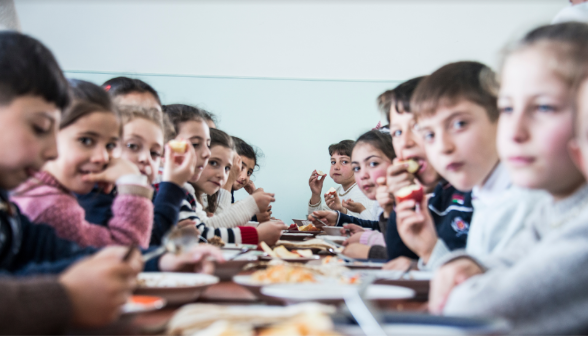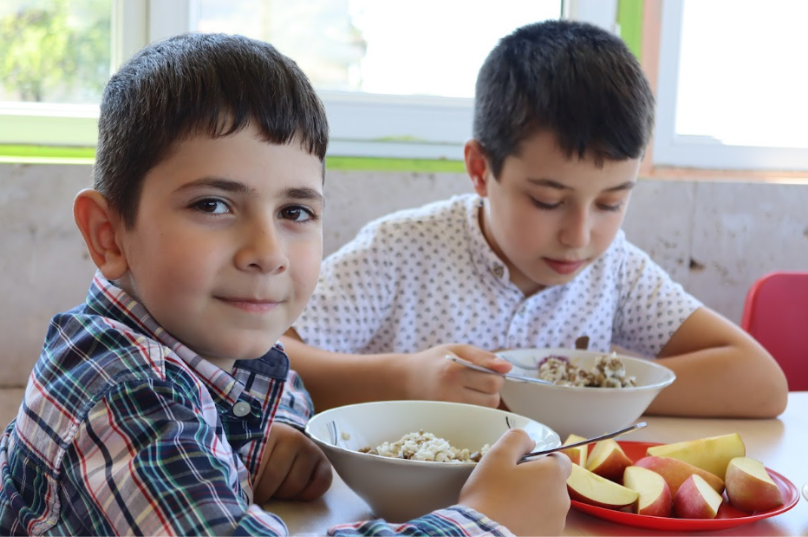
On Tuesday, February 6th, representatives of the Armenian government and the World Food Programme (WFP) staff in the country met again with the Brazilian government, represented by the National Fund for Education Development (FNDE, in Portuguese) and the Brazilian Cooperation Agency (ABC, in Portuguese), of the Ministry of Foreign Affairs, for the second session of the “Virtual Study Visit: Brazil”. The visit is promoted by the WFP Centre of Excellence against Hunger Brazil and allows the exchange of good practices on school feeding between the Brazilian government and other countries in the global South.
The first session took place at the end of January and, after this meeting, the participants had a week to watch the videos that present the main points and messages of the National School Feeding Programme. The videos simulate an immersion in the programme and cover topics such as PNAE legislation; financing; institutional capacity; design and implementation; community participation and family farming.
“After watching the videos, we realised that there are many similarities with Brazil’s system. We understand that we don’t need to invent anything, just achieve our goals through joint efforts and mutual collaboration,” said Maria Muradyan, WFP Policy and Programme Officer in Armenia.
As is the case with the PNAE, school meals in Armenia emphasise the nutritional education of students and are concerned with the link between the quality of the meals served and the educational activities developed with students, families and communities. With support from the WFP, for example, the country has established greenhouses, orchards and vegetable gardens to complement school meals. “Armenia has made efforts to make its programme more resilient and institutionalised, as well as financially sustainable. This is a challenge all over the world,” said Vinícius Limongi, Head of the Programme Unit at the WFP Centre of Excellence.
Armenia, like Brazil, is a member of the Global School Meals Coalition, an arrangement between countries created in 2021 to respond to the impacts of the COVID-19 pandemic on school feeding and the education of young people and children around the world. Brazil became co-chair of the Coalition in 2023, along with France and Finland.
Questions and Answers

The Armenian government had the opportunity to ask a series of questions about PNAE after the virtual immersion in the Programme. Some of the main questions were about how the programme has managed to become a perennial and benchmark public policy in Brazil, the origin of the PNAE, its national expansion, the funding of the programme and the training of nutritionists.
The Brazilian government representatives asked questions about the professionals responsible for the school feeding programme in Armenia, the centrality of food and nutrition education and the prospects for the programme. The Armenian government added that the national menus are designed by nutritionists and serve as the basis for the meals served in schools.
The partner country’s focus now is to implement the national school feeding strategy, offering food to all primary school children and expanding activities with school gardens. As a result of the online meeting, the Yerevan government will evaluate the possibility of a face-to-face mission to Brazil or a pilot project supported by Brazilian institutions.
Before Armenia, Namibia, Angola, Ethiopia, Lesotho and Sierra Leone took part in the “Virtual Study Visit: Brazil”. In some cases, the good practices and lessons learnt led to subsequent high-level or technical visits to Brazil. Participants from the Brazilian side were also able to learn from the experiences shared by the partner countries.




